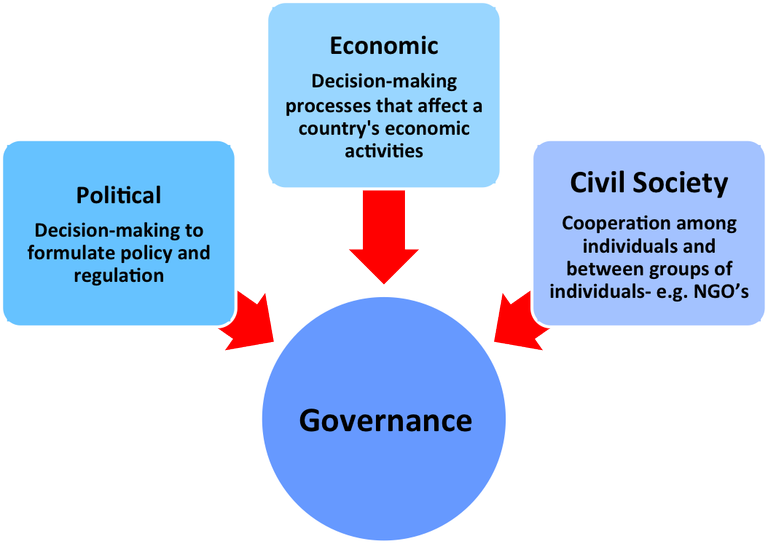What is Governance?
Introduction
Simply put governance means the process of decision-making and the process by which decisions are implemented (or not implemented). The challenge for all societies is to create a system of governance that promotes, supports and sustains human development - especially for the poorest and most marginal.
Governance can be seen as the exercise of economic, political and administrative authority to manage a country's affairs at all levels. It comprises the mechanisms, processes and institutions through which citizens and groups articulate their interests, exercise their legal rights, meet their obligations and mediate their differences.
The processes of governance can be expressed through three key mechanisms: economic, political and civil society.
- Civil society – This includes non-governmental institutions and arrangements and focuses on individual and collective behavior, and cooperation among individuals and between groups of individuals- in particular NGOs and special interest groups.
- Political - This includes the process of decision-making to formulate policy and regulation, whether at a local, regional, or national level.
- Economics – This includes decision-making processes that affect a country's economic activities and its relationships with other economies as well as efforts to attach monetary value to environmental goods and services.

These mechanisms interact with one another through complex and dynamic interrelationships. Individually and collectively these three mechanisms of governance affect how society uses and otherwise interacts with its environment.
Good governance
Good governance should be, among other things, participatory, transparent and accountable. It should also be effective and equitable. And it promotes the rule of law. Good governance ensures that political, social and economic priorities are based on broad consensus in society and that the voices of the poorest and the most vulnerable are heard in decision-making over the allocation of development resources.
Further information on governance:
Olsen, S.B. et al, 2006, A Handbook on Governance and Socioeconomics of Large Marine Ecosystems, University of Rhode Island
Sutinen, Jon G., 2000, A Framework for Monitoring and Assessing Socioeconomics and Governance of Large Marine Ecosystems, NOAA Technical Memorandum NMFS-NE-158
Good Governance - and Sustainable Human Development, 1997, A UNDP policy document United Nations Development Programme

























